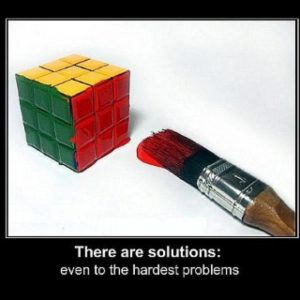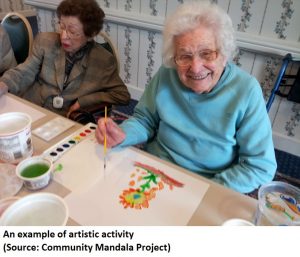Can a frequently asked questions (FAQ) list without any answers help you solve your problem?
You might scoff at the idea at first and wonder to yourself, “if there are no answers, what’s the point of an FAQ list?”
Surprisingly, a recent study from the University of British Columbia conducted by Dr. Sarah Burke has found that university students were able to solve problems more effectively when given just a list of frequently encountered problems.
In her study, Dr. Burke – a physics and chemistry professor at UBC – offered a “help menu” to first year students during their physics lab exam. The menu contained a list of commonly encountered problems, and students were given the option of requesting for help with specific tasks at the expense of some of their exam grade.
Over 20% of the students were able to solve their problem simply by looking at the list of areas to ask help for and did not request for actual help from the instructors.
So how does this “help menu” work?
Troubleshooting
Troubleshooting is a process of problem solving, which is often applied in technical fields to repair failed products, machines, or systems. It is a search for the source of the problem in a logical manner by following a series of steps to determine the root of the problem and learn how to go about solving it.
Although you might not realize it, you already use troubleshooting skills on a daily basis.
https://www.youtube.com/watch?v=8qE2BKqxDDM&feature=youtu.be
Why is troubleshooting important?
Problem-solving and troubleshooting go hand-in-hand helping us see different solutions to problems from a number of different perspectives. Troubleshooting may effectively strengthen our capacity to think intelligently and flexibly when faced with unfamiliar problems that not only school, but life as a whole throw in our direction.
After the interview with Dr. Burke about her recent study, she made it evident that in today’s ever-changing world, one of the most important criteria for success is having the ability to think and work independently.
“Those are life long skills, right, if you know very general strategies on how to tackle a problem, you can tackle problems in many different fields.”
– Dr. Sarah Burke
How do you encourage troubleshooting?
So we’ve seen why troubleshooting is important, and how it can help us solve our problems. But how do we learn to troubleshoot independently instead of simply relying on our friends or the teaching assistants for help?
This is the idea behind the “help menu”.
Dr. Burke compares the use of a help menu to a scratch card. She mentions the analogy of points being deducted for every time you scratch an answer, as a penalty. The same method was used in her study, as students were incentivized to troubleshoot and solve the problem themselves to avoid point deductions on the exam for asking for help.
The following video, outlines a snippet from what may occur in a physics laboratory with, and without the use of a help menu.
So the next time your iPhone stops working, instead of checking the FAQ list for a quick solution.
Pause for a second.
Look at the list of potential problems and try to solve the issue yourself. You might be surprised by your own ability to troubleshoot while strengthening a crucial skill for other areas of your life at the same time.
Group 3: Justin Tao, Harmen Tatla, Zimeng Li, Kelvin Au






